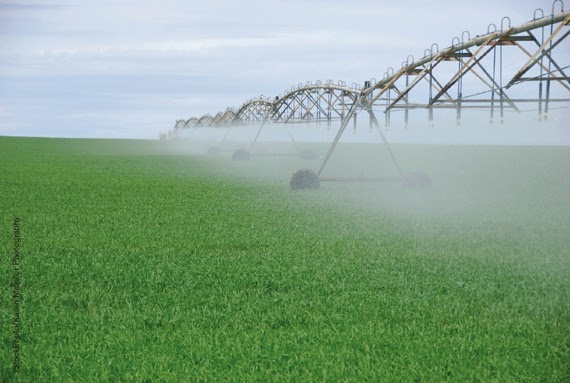What do the blue
jeans you wear, the hamburger you have for lunch, and the sheet you make your
bed with have in common? They all take copious amounts of water to produce. When you drink a glass of fresh water, do
you think about how it may have been cleaned by a watershed upstream? When you eat fresh fruit or grains,
do you think about the thousands of species - like bats, bees, birds, and
butterflies–that pollinated your food? If you do, you’re a
minority. Most of us don’t think about, or don’t even realize, the vast array
of services nature provides us every day. We call this myriad of nature’s
benefits on which we fundamentally depend ecosystem services.
 |
| Bees pollinating flower |
Humankind benefits from a multitude of resources and
processes that are supplied by ecosystems.
Collectively, these benefits are known as ecosystem services and include products like clean drinking water
and processes such as the decomposition
of wastes.
No
matter who we are, or where we live, our
well-being depends on the way ecosystems work. Most obviously, ecosystems can
provide us with material things that are essential for our daily lives, such as
food, wood, wool and medicines. Although the other types of benefit we get from
ecosystems are easily overlooked, they also play an important role in
regulating the environments in which we live. They can help ensure the flow of
clean water and protect us from flooding or other hazards like soil erosion,
land-slips and tsunamis. They can contribute to our spiritual well-being,
through their cultural or religious significance or the opportunities they
provide for recreation and the enjoyment of nature.
 |
| Example of Ecosystem |
Ecosystem services are the benefits provided
by ecosystems that contribute to making human life both possible and worth living. Examples of ecosystem services include
products such as food and water, regulation of floods, soil erosion and disease
outbreaks, gas regulation (e.g.
maintaining a balanced chemical composition in the atmosphere), climate
regulation (e.g. control of global temperature, precipitation, greenhouse gas
regulation, cloud formation), and spiritual benefits in natural areas,
and non-material benefits such as recreational (e.g. opportunities for tourism, sport and other outdoor pastimes),
cultural (e.g. opportunities for aesthetic, artistic, educational, spiritual
activities). The term ‘services’ is usually used to encompass the
tangible and intangible benefits that humans obtain from ecosystems, which are
sometimes separated into ‘goods’ and ‘services’.
Some ecosystem services involve the direct
provision of material and non-material goods to people and depend on the
presence of particular species of plants and animals, for example, food,
timber, and medicines. Other ecosystem services arise directly or indirectly
from the functioning of ecosystem processes. For example, the service of
formation of soils and soil fertility that sustains crop and livestock
production depends on the ecosystem processes of decomposition and nutrient cycling
by soil micro-organisms.
Some scientists have advocated a stricter
definition of ecosystem services as only the components of nature that are
directly enjoyed, consumed, or used in order to maintain or enhance human
well-being. Such an approach can be useful when it comes to ecosystem service
accounting and economic valuation. Other services, for example, those that
support and regulate the production levels of crops and other harvested goods,
are more difficult to quantify.
 |
| Flooding |
 |
| Food for harvest |
As human populations grow, so do the resource
demands imposed on ecosystems and the impacts of our global
footprint. Natural resources are not invulnerable and
infinitely available. The environmental impacts caused by human actions, are
becoming more apparent – air and water quality are increasingly compromised,
oceans are being overfished,
pests and diseases are extending beyond their historical boundaries, and deforestation is
exacerbating flooding downstream.. The need to better consider long-term
ecosystem health and its role in enabling human habitation and economic
activity is urgent.
Ecosystem services, since they are the
benefits from nature, are often discussed in the context of
conservation, but in our daily lives we make choices that depend on and affect
flows of services from nature, since all goods and products we use today
originate from nature and its services. Each choice we make—drive or ride a
bus, buy organic or buy regular vegetables, turn on the heat or put on an extra
sweatshirt—has tradeoffs. Conserving nature or converting nature does too, but
tradeoffs associated with nature's values are often harder to assess. Not
understanding nature's role in the products we use means we won't conserve
nature sufficiently; this in turn will compromise our ability to access
products we need, or we will have to find sometimes costly alternatives for
what nature could otherwise provide to us. Incorporating the full suite of
costs and benefits into decision-making means evaluating all costs and benefits
associated with nature, too.
 |
| Irrigation system |
Share with us your experiences, comments and
recommendations. Send emails to wildlifemgtsociety@gmail.com
No comments:
Post a Comment